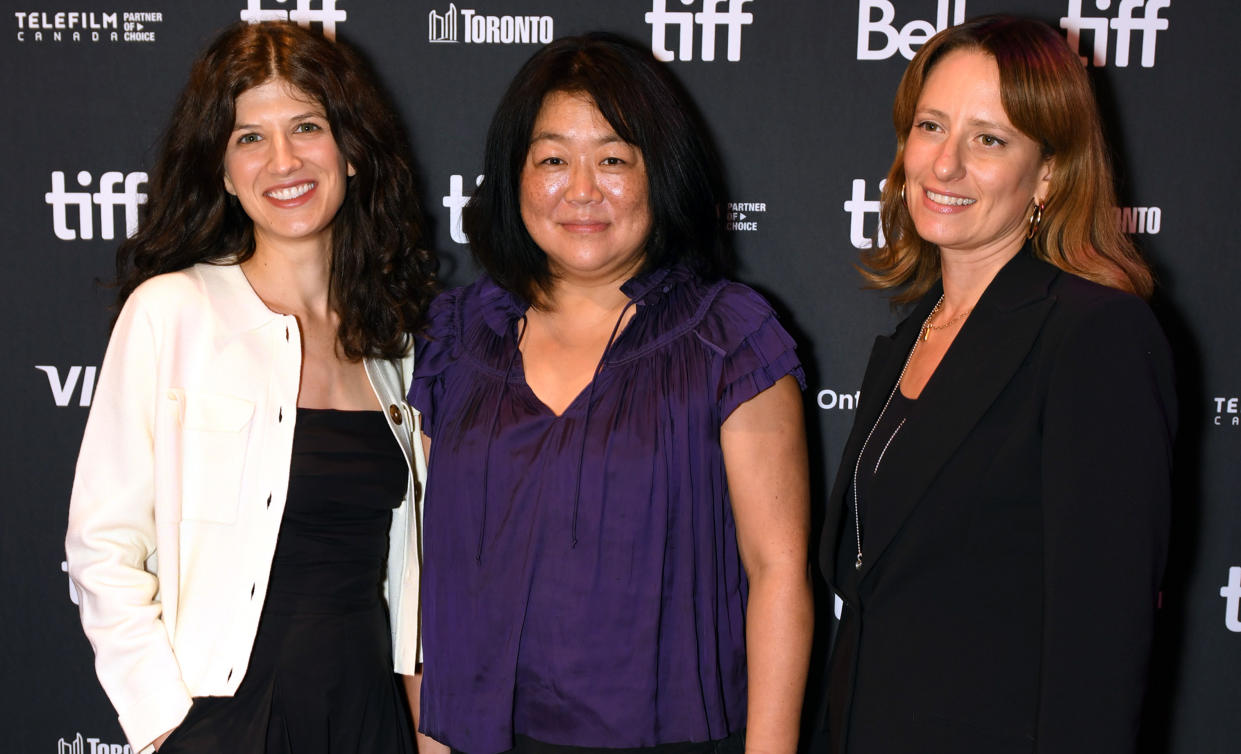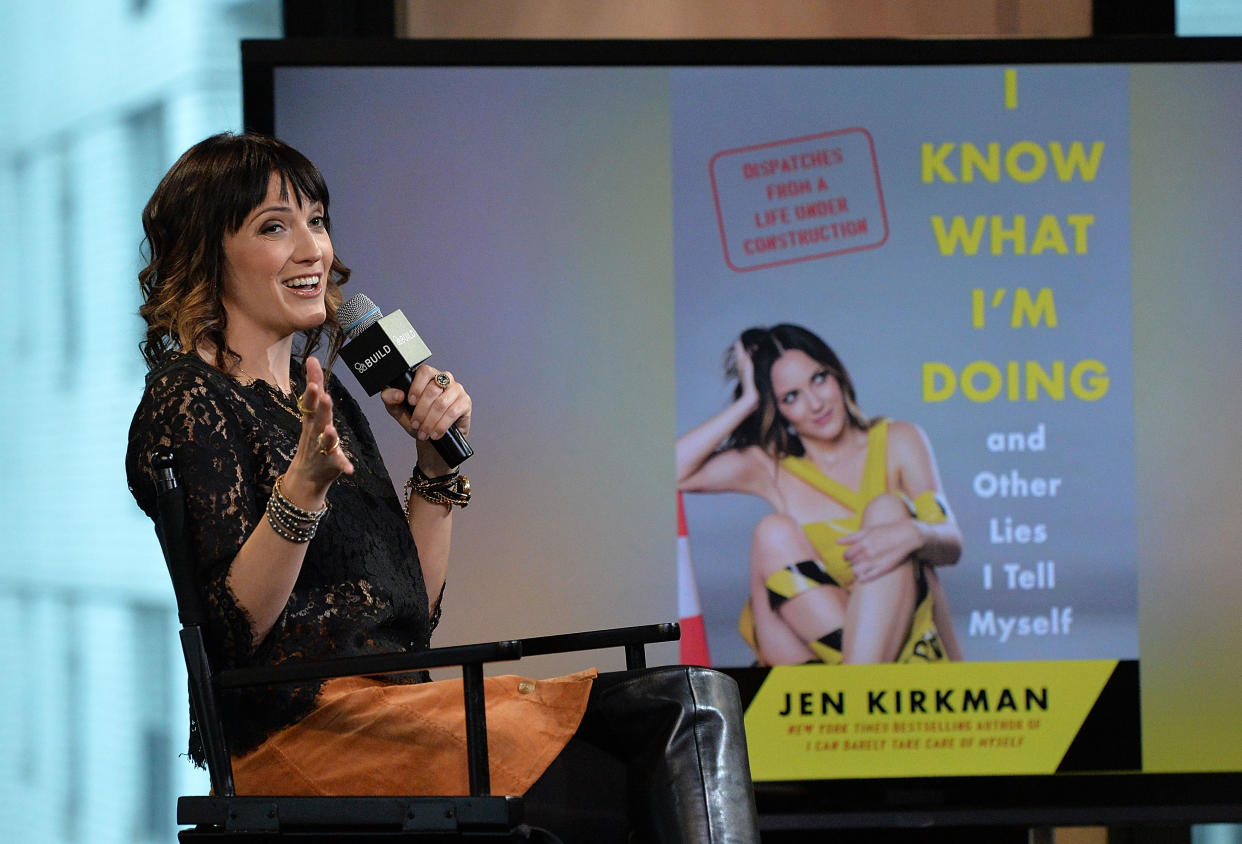Louis C.K.'s comeback from cancellation explored in new documentary: 'There are no easy answers'

After a meteoric rise through the comedy ranks, Louis C.K.'s career appeared to essentially end on Nov. 9, 2017. That's the day that The New York Times published a blockbuster report that detailed multiple allegations of sexual misconduct against the stand-up comic and TV star, some dating back well over a decade. Far from denying the accusations that he masturbated in front of women without their consent, C.K. released a lengthy statement that stated, "These stories are true." The statement ended with the comedian — who had already lost his prominent berth at the FX network — promising to take a "step back" from the public spotlight.
As it turned out, that "step back" lasted about nine months. In August 2018, C.K. returned to the stand-up stage and has continued to perform to sold-out audiences, who often laugh along as the comedian addresses the charges from the stage. Meanwhile, some the female comics that shared their stories with the Times have also chosen to step back. When the filmmaking team behind Sorry/Not Sorry — the new documentary about the Louis C.K. case that had its world premiere at the Toronto International Film Festival — tried to interview them on camera, they were turned down.
"Many women who had spoken out around 2017, when we re-approached them in 2021, they declined," Sorry/Not Sorry producer Kathleen Lingo observed at a post-premiere Q&A that Yahoo Entertainment attended. "It's sort of a sobering reality and it just goes to show the bravery of the women who are in the film." (Lingo works at The New York Times, which produced the film.)
"Looking back at the #MeToo movement now, everyone's always asking 'Are things better?' or 'Are things worse?'" Lingo continued. "It's really hard to have a sort of assessment, but the fact that those women felt this sense of promise at that moment to now not feel that anymore is quite stark."

Sorry/Not Sorry directors Cara Mones and Caroline Suh did interview two female comics who have spoken up about their negative experiences with C.K., Jen Kirkman and Abby Schachner. While Kirkman says that the comedian never exposed himself in front of her, he did make numerous remarks that made her uncomfortable, including that he expected they would sleep together one day. "I didn't want to be around him," Kirkman says in the film, adding that she became increasingly aware of stories about his behavior with other women — stories that she first alluded to on an episode of her podcast, I Seem Fun, that went viral in 2015.
Schachner was one of those women, and she went on the record with The New York Times in 2017, recalling a 2003 phone conversation she had with C.K. where she could hear him masturbating while they talked. "I felt duped," Schachner says in Sorry/Not Sorry. But she also expresses mixed feelings about the way this one experience has come to define her in the public eye — an unfortunate reality that women who have shared their #MeToo stories often face.
Mones and Suh made repeated offers to C.K. to appear in the film as well, but the comic declined. Instead, he's represented entirely through archival clips and footage from his most recent stand-up shows and interviews with sympathetic sounding boards like Joe Rogan. Mones said that many of C.K.'s contemporaries and collaborators also declined to talk on camera about what had been an open secret for years. (Michael Ian Black, Michael Schur and Megan Koester are some of the comics and comedy writers who did agree to be interviewed.)
"It was quite difficult to get people in the comedy industry to sit for an interview, which I think was a little bit surprising," the filmmaker said. "This is six years later, and yet this is a topic that people were afraid to talk about. That says a lot."

Interestingly, Suh admitted that when the story first broke, she asked herself whether the charges against C.K. were serious enough to be career-destroying — a point that other comedians, like Dave Chappelle, made as well. "I was a big Louis C.K. fan," the filmmaker said. "When The New York Times story came out, I was surprised, but I was also like, 'Is it that bad?' I started to look into it and reached out to the people involved in the story, and I started to get much more of a sense of the other dimensions of the story."
"I'm an old Gen-Xer with very calcified idea of what's normal behavior," Suh continued. "There's a big generational difference. We would have lots of animated phone calls where I would say, 'Is it really that bad?' And others would say, 'Yes it is really bad!'"
Asked by an impassioned audience member how to deal with problematic men like C.K. being able to chart a career comeback, Suh said it's a conversation that will continue to evolve. "Unfortunately, there are no easy answers. I wanted to make the film to wrap my mind around it, and I still haven't completely been able to do that. This is happening not in some far-flung fancy place like Hollywood — this is everywhere."
"When were were tracking how this open secret was growing, we could really see how many people were aware, both in the industry and among consumers of Louis's work," Mones added. "Some of these women's stories are subtle and small, and those are the ones that are easy to personally ignore, and not speak up about. But at least for myself I'm now much more aware and try to be a little bit less cowardly."
